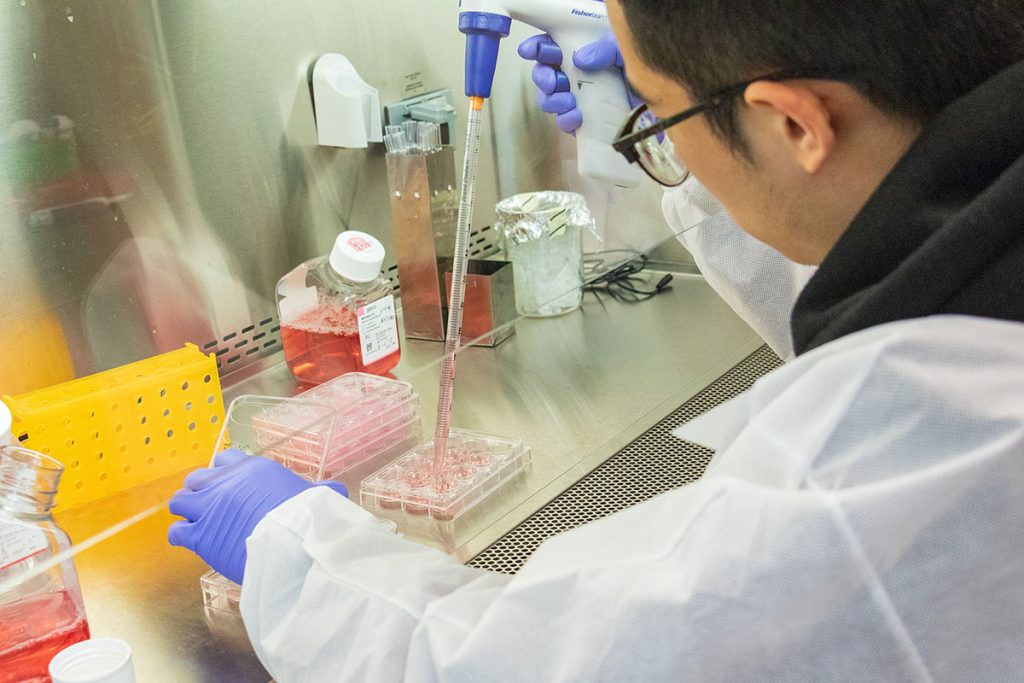The Office of Research has launched a searchable database for UCF faculty and scientists.
Agencies have put out calls for proposals, but with hundreds of agencies and multiple opportunities with their own specific requirements, it can be daunting to find a good match. The database offers UCF faculty and scientists a quick way to search using key words. There are more than 150 opportunities in the database at the moment. Despite social distancing protocols that have limited access to research labs, investigators at UCF are continuing to work.
It typically takes anywhere from a few weeks to several months to get approval, but many agencies are responding within a month. The university has submitted 16 proposals to a variety of agencies that represent innovative ideas to tackle the myriad of problems connected to COVID-19.
“Researchers make a difference in the world every day, from finding new ways to harness energy to inventing new technology which improves our lives,” says Elizabeth Klonoff, vice president for research. “Their role has never been more important than today. As a research university, it is our responsibility to support our investigators and help bring them together to find solutions to local, national and world problems. This is our biggest challenge yet.”
The pandemic has resulted in more than 189,000 deaths and 2.7 million infections worldwide as of April 23. Of those, more than 49,000 deaths and more than 868,000 infections are in the United States. The nature of the virus is changing every aspect of life from how we work to how we interact socially.
So far, UCF has received funding for one project – an interdisciplinary collaboration between engineering Professor Sudipta Seal and College of Medicine Professor Griffith Parks is exploring the creation of a nanoparticle film that could be used on face shields medical providers use. The film could potentially capture and destroy the virus. The National Science Foundation funded the proposal earlier this month.
Other faculty members have proposed examining the influence on consumer behavior of fake COVID-19 news shared on social media channels. The goal is to provide mitigation strategies to disseminate accurate and potentially life-saving information and guidance that people will follow despite competing disinformation.
A few teams have ideas to develop new diagnostic tools that are mobile and easy to deploy so that testing for antibodies can be done quickly and at a large scale. Others are looking at the effects of COVID-19 on the heart and other organs and others are looking at the psychological impact of the virus on employee safety.
